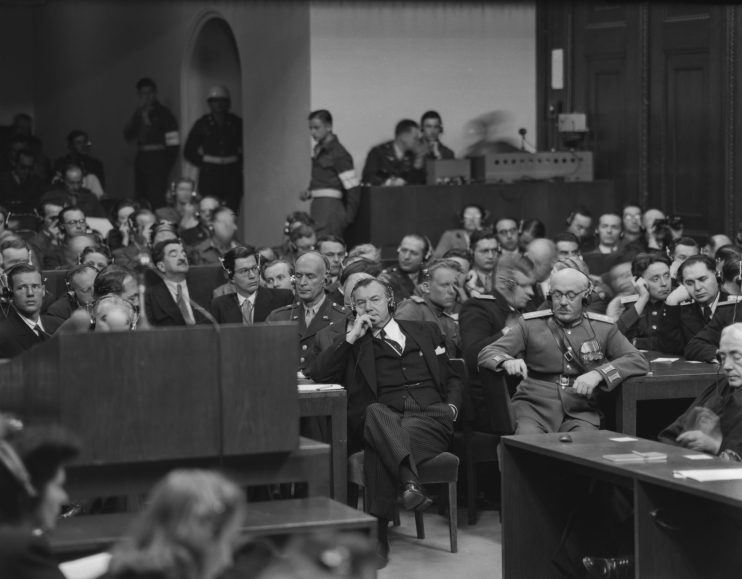Heed the lessons of Nuremberg: The signs of genocide cannot be ignored

Seventy-five years ago today, British judge Sir Geoffrey Lawrence opened the most famous trial in the history of jurisprudence.
Sat in front of him, packed into Courtroom 600 in the German city of Nuremberg, were the few surviving architects of Adolf Hitler’s Third Reich.
Having been charged with the murder of millions of innocent men, women and children, the surviving leaders of Nazi Germany were now on trial.
Chief prosecutor Robert Jackson, an American, began his opening statement by proclaiming: “The record on which we judge these defendants today is the record on which history will judge us tomorrow.” Three quarters of a century on, “tomorrow” has now come.
The case Jackson brought, and the precedents set by Sir Geroffrey Lawrence and the other judges who presided over the Nuremberg Trial, are their legacy. The detailed account of the horrors inflicted on Europe by the Nazi regime shone a light on the scale of their cruelty, while at the same time giving birth to modern international criminal law.
Indeed, the International Criminal Court in The Hague is the direct descendant of Courtroom 600. Yet despite the horrors laid bare all those years ago, humanity appears to be failing to learn the lessons.
Seventy-five years on from Nuremberg, further genocides have already taken place in Cambodia, Rwanda, Bosnia and Darfur. And today we know about the suffering and the plight of Rohingya Muslims in Myanmar. We see reports of Uighur Muslims in China, shackled and blindfolded, separated from families and loaded onto trains.
Genocide never just happens. We know the warning signs: according to Gregory H. Stanton, President of Genocide Watch, there are 10 stages that take place before, during, and after a genocide. They include discrimination, dehumanisation and persecution.
Each and every one of us has the power to prevent genocide from developing. Stay informed, learn about the past, stand up against hatred and prejudice today, and don’t fall for polarisation in today’s divided world of misinformation.
Looking back, we can see that the Nazis were open about their intentions. When Jackson outlined his case against the former leaders of Nazi Germany and the evidence he planned on presenting to the court, he said: “We will show you their own films. You will see their own conduct and hear their own voices.”
The testimony of Holocaust survivors may have been the most powerful evidence presented at Nuremberg, but the most damning were the records left by the Nazis themselves. In these records you can see the slow march towards the Holocaust. What started as an idea expressed in a book morphed into legislation via the Nuremberg Race Laws, and was enshrined at the Wannsee Conference — the final meeting to coordinate the state-orchestrated annihilation of Jews, Roma, and other minority groups persecuted by the Nazis.
It is precisely because the process was put under the microscope at Nuremberg that Julius Streicher was indicted at the trial. He was not a member of the military, nor did he play any part in planning the Holocaust. Yet as the founder and publisher of Der Sturmer, an antisemitic magazine, his role in dehumanising and inciting violence against the Jewish community made him an accessory and facilitator to the Holocaust.
Thanks to some excellent journalism and the brave voices of Uighur dissidents, we have a record of what’s unfolding in western China today. And while no one knows the endgame of the Chinese government’s plans in Xinjiang, we should not consign ourselves to the role of idle spectators.
History has already shown us the high cost of silence. As Edmund Burke said: “The only thing necessary for the triumph of evil is for good men to do nothing.”
The Holocaust is one of humanity’s darkest moments and its scars run deep to this day. At Nuremberg, the full extent of the darkness was exposed for the world to see. As we look back at this historic trial, I urge everyone to ask themselves how history will judge us tomorrow.
The Nuremberg Trials left the world with the legal framework to punish the most atrocious crimes. But it also left us with so much more. It gave us an understanding of the process that led to genocide, and shone a light of justice through the darkness of identity-based prejudice. In doing so, it has given us the inspiration to be lights in the darkness today.
Main image credit: Getty
